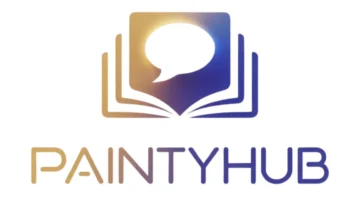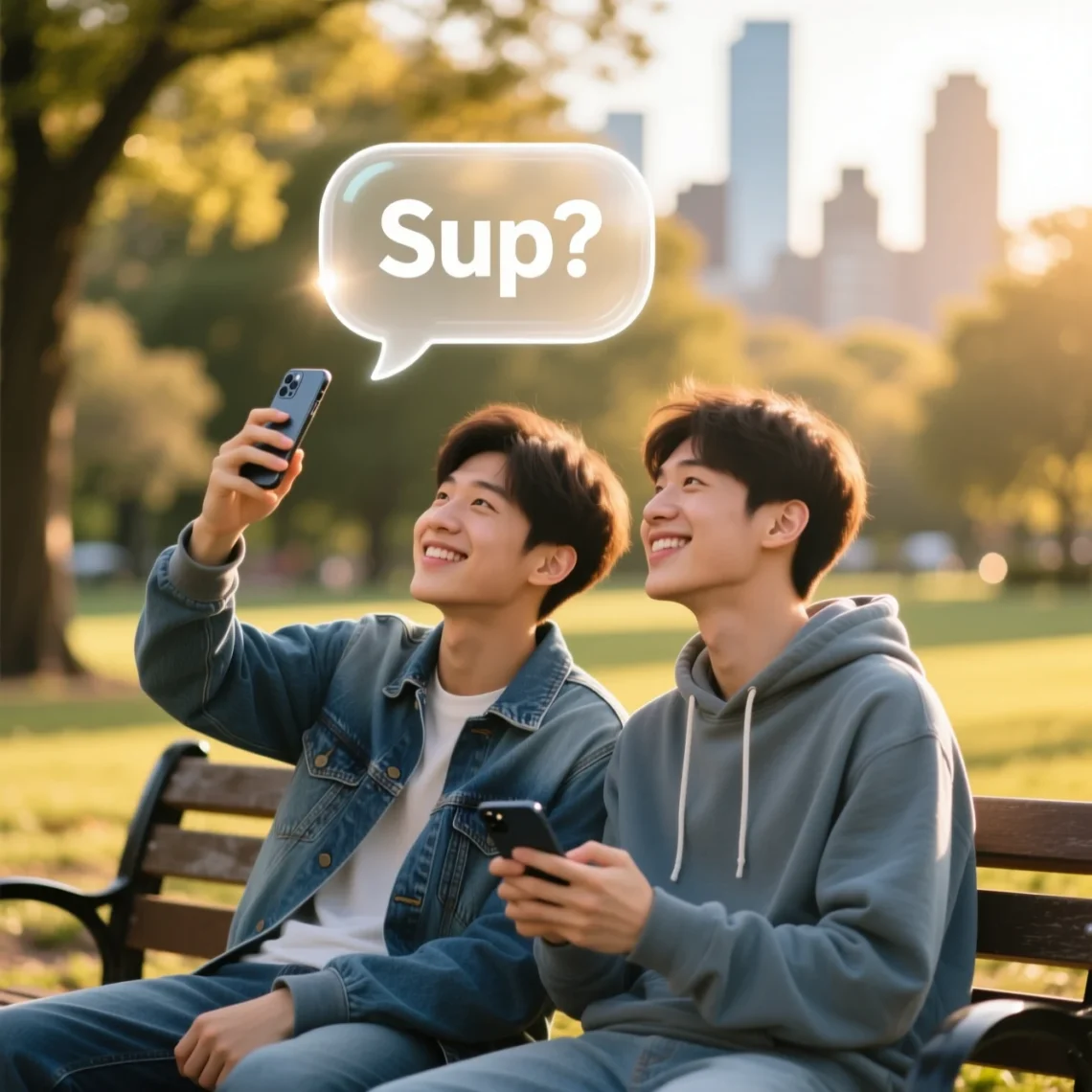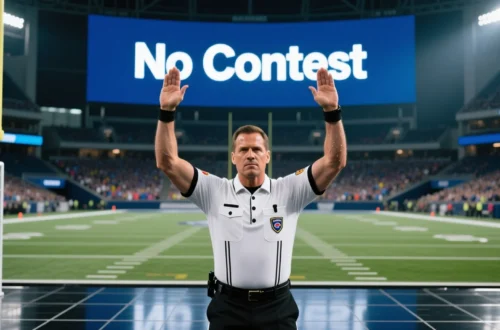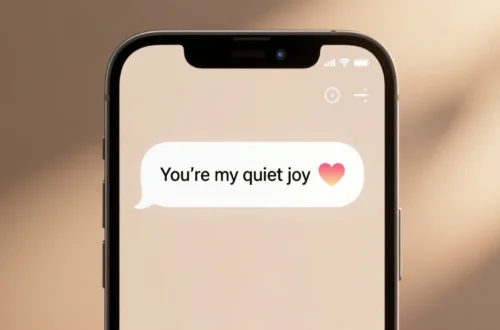Have you ever received a message that simply says “sup” and wondered what it actually means? In today’s fast-paced texting culture, short abbreviations and slang dominate text messages, social media, and online chats.
Understanding these terms is crucial for effective communication and avoiding confusion.
“Sup” is one of the most common greetings in casual conversations. Knowing its meaning helps you respond appropriately, whether in texting, gaming, social platforms, or even professional messaging where informality is acceptable.
This article explains the definition, history, usage, common misconceptions, and responses for the term “sup,” so you can use it like a pro.
Definition & Meaning
“Sup” is a short, informal way of asking “What’s up?” It’s commonly used in texting, online chats, and casual conversations to greet someone or start a conversation.
Example Dialogue:
Alex: “Sup?”
Jordan: “Not much, just chilling. You?”
Key Points:
- Casual greeting, often informal.
- Can be used in texting, DMs, gaming, and social media.
- Friendly and approachable tone.
LSI Keywords: sup meaning text, sup slang, sup definition, sup texting, sup in chat
Background & History
The term “sup” originated as an abbreviation of “What’s up?”, which has been a casual greeting in English since the 1970s.
Evolution
- 1970s–1980s: “What’s up?” used in movies, TV, and real-life conversations.
- 1990s: With the rise of SMS and instant messaging, “sup” became a shorter, faster way to greet friends.
- Today: Used widely on social media, WhatsApp, Discord, and dating apps.
Fun Fact: “Sup” has crossed cultural boundaries and is now understood globally, particularly among millennials and Gen Z.
Usage in Various Contexts
Texting
Sophie: “Sup?”
Emma: “Hey! Just finished homework.”
Social Media
- Twitter: “Sup everyone! Ready for the weekend?”
- Instagram story: “Sup fam! ❄️”
Gaming Communities
- Players greet teammates: “Sup team, ready for this round?”
- Casual check-ins during streams: “Sup chat, how’s it going?”
Casual Conversation
Ryan: “Sup, man?”
Mike: “All good. Just grabbed coffee.”
Tip: “Sup” is casual and best used with friends, peers, or informal audiences.
Common Misconceptions & Clarifications
Misconceptions:
- Only for young people: Not true; anyone familiar with texting slang can use it.
- Rude or lazy: Informal but not inherently disrespectful.
- Requires long response: A simple reply like “Not much, you?” is sufficient.
Dialogue Example:
Alex: “Is ‘sup’ lazy?”
Jordan: “Not really. It’s just a quick greeting.”
Key Takeaway: Context matters—avoid using “sup” in formal emails or professional settings.
Similar Terms & Alternatives
| Term | Meaning/Use Case | Notes |
|---|---|---|
| Hey | Casual greeting | Slightly more formal than sup |
| Yo | Very informal, often in texting | Trendy, street-style |
| What’s up? | Full phrase, neutral tone | Standard, less casual |
| How’s it going? | Casual check-in | Slightly more conversational |
These alternatives let you adjust tone based on context.
How to Respond to “Sup”
Your response depends on context and relationship.
- Casual:
“Not much, you?”
- Funny:
“Sup? Just plotting world domination 😎”
- Professional/Neutral:
“Hello! How’s your day going?”
- Privacy-Conscious:
“Hi! Keeping busy today.”
Regional or Cultural Differences
- North America: Most popular in informal chats and texts.
- Europe: Understood by English speakers; less common in professional settings.
- Asia & Latin America: Mostly among younger, English-speaking audiences or online communities.
Tip: Always consider cultural context before using casual slang.
Comparison with Similar Terms
| Term | Tone | Context | Notes |
|---|---|---|---|
| Sup | Informal/friendly | Texting, online chats | Quick greeting |
| Hey | Neutral | Casual or semi-formal | Slightly more polite |
| Yo | Informal/fun | Texts, gaming, memes | Trendy/street style |
| What’s up? | Casual | Talking, texting | Slightly longer, polite |
Usage in Online Communities & Dating Apps
- Tinder/Bumble: Used as an opener in chats: “Sup? 😏”
- Discord/Gaming: Quick greeting during team discussions.
- Social Media Posts: Casual way to engage followers.
Tips:
- Respond naturally; humor works well.
- Avoid overusing with strangers—it can feel lazy.
Hidden or Offensive Meanings
“Sup” is generally harmless. It does not carry offensive meaning, though tone or emoji choice can change perception. For example:
- “Sup 😏” can imply flirtation.
- “Sup?” alone is neutral.
Rule: Use emojis carefully to convey intended tone.
Suitability for Professional Communication
- Not recommended for formal or corporate emails.
- Alternatives for workplace:
- “Hello”
- “Hi, how are you?”
- “Good morning/afternoon”
Example:
Instead of “Sup John,” say, “Hi John, how are you today?”
FAQs
Q1: What does sup mean in text?
A: Short for “What’s up?”; a casual greeting.
Q2: Is sup slang or formal?
A: Informal slang, used in texting and casual conversation.
Q3: Can sup be used professionally?
A: Not recommended; use “Hello” or “How are you?” instead.
Q4: Is sup rude?
A: No, it’s friendly and casual.
Q5: How do you reply to sup?
A: “Not much, you?” or “Hey! How’s it going?”
Q6: Where is sup commonly used?
A: Texting, social media, gaming, and dating apps.
Q7: Are there similar greetings?
A: Hey, Yo, What’s up?, How’s it going?
Conclusion
“Sup” is a short, friendly, and widely-used slang term for casual greetings. Understanding it helps you communicate effectively in texting, social media, gaming, and online communities. While harmless in informal settings, avoid using it professionally, where neutral alternatives work best.
With this guide, you can confidently recognize, respond, and even use “sup” naturally in daily conversations.






